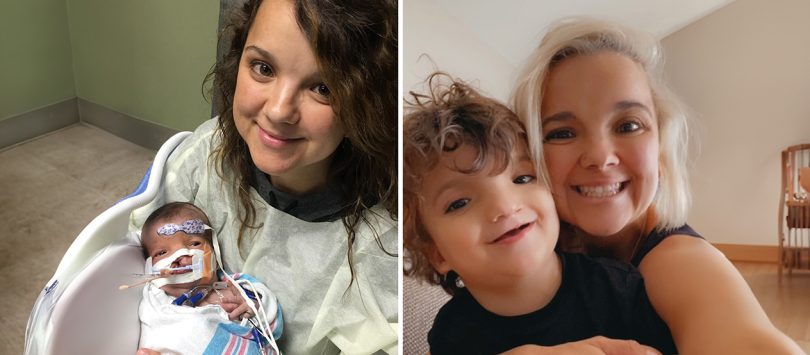Amanda Dion had her heart set on having a girl. After three boys, she was very excited when her doctor told her after an early sonogram that she would finally have one.
Another sonogram a few weeks later told another story. Not only was she having a boy, but the sonogram showed something a little more concerning. He would have a cleft lip.
“My ultrasound tech was taking more time this time, measuring more,” Dion said. “I’m like, ‘What’s going on?’ She said, ‘We’ll just wait until the doctor comes in.’ About that time, I see her go across his face and you could see his cleft lip in the picture on the screen.”
That wasn’t all. Her doctor sat her down and explained that not only would her baby boy, Jace, have a cleft lip, but he might have a cleft palate. There was also an abnormality in his brain, which was eventually diagnosed as Dandy Walker Syndrome.
Dandy Walker is a brain malformation that affects coordination. In many children, the condition causes hydrocephalus, in which fluid in the brain doesn’t drain properly. These children often have a large head size and slow motor development.
No one would know how the condition would affect Jace until he grew and began to develop, Dion said.
However, the staff at Children’s Hospital of Georgia stepped in to not only deliver Jace early – Dion was borderline preeclamptic and had a C-section at 37 weeks – but to treat Jace and help ensure he lives a healthy, normal life.
Jace spent the first few days of his life in the NICU on ECMO. Once he was stable, he was able to go home with oxygen and a feeding tube, but the battles were just beginning. Jace developed pneumonia, several sets of ear tubes, and had shunt in his liver repaired. He also had heart surgery to correct a congenital heart defect.
As he grew, Jace had a difficult time eating due to a laryngeal cleft.
“It can cause aspiration, which can make it hard for babies to gain weight and stay well,” said Dr. Heather Koehn, a pediatric otolaryngologist at Children’s Hospital of Georgia and assistant professor of pediatric otolaryngology at Augusta University’s Medical College of Georgia.
Jace had to have a feeding tube, and frequently had tubes put in his ears. Koehn explained that children with a cleft palate also tend to have frequent ear infections. Swallowing helps us pop our ears, releasing fluid and ventilating the ear.
“If your palate isn’t born with the muscles connected, then the whole mechanism doesn’t function properly,” Koehn said. “Then you’re not able to ventilate the ears through the Eustachian tubes. The ears end up accumulating thick mucus, and then that fluid is like being underwater all the time. So a child can’t hear clearly and it puts them at risk of speech delay and other learning delays.”
His neurologists are continuing to monitor his Dandy Walker symptoms, which thankfully are not severe. He continues to see a team of speech therapists, physical therapists, and occupational therapists every other week.
Now 4, Jace is an active, typical young boy who loves dinosaurs, playing with his brothers and going swimming.
“It took us a long time to get him there, but he’s definitely in a good spot,” Dion said. “He’s definitely super resilient. Bounces back from everything.”


